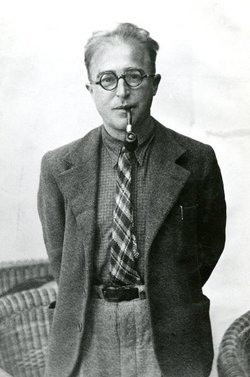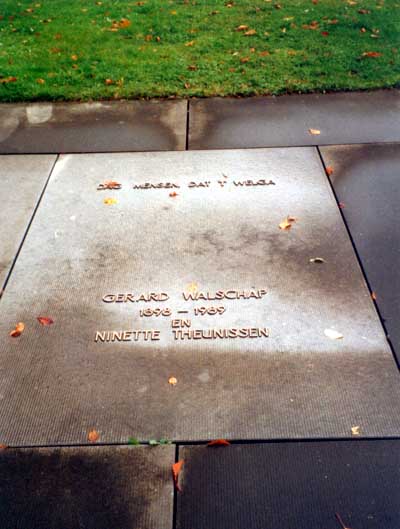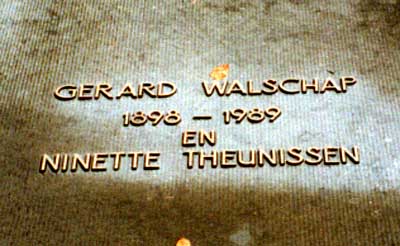In part of his work he considers society a burden which is hard to bear, such as in "De Bejegening van Christus" (E: Meeting with Christ) (1940). In his work he also glorifies the extremes of society, such as the primitive life in "Volk" (E: people) and "De dood in het dorp" (E: Death in the village) (1930), and the almost aggressive freedom in "Het kind" (E: The child) (1939) and "De consul" (1943) and the expression of worriless freedom in probably his most famous work "Houtekiet" (1939).
His novel "Zwart en wit" (E: black and white) of 1948, deals with the collaboration (Nazi-Collaborators were called blacks in Belgium, and resistance fighters whites) with Nazism and the repression after World War II. "Zuster Virgilia', of 1951, deals with the eternal fight between faith and disbelief. In his book "Oproer in Kongo" (E: Revolt in Congo) from 1953, he wrote about colonialism, which he conceived after along journey through Belgian Congo in 1951. As a writer he reveals his own inner self in "Het gastmaal" (1966) en "Het avondmaal" (E: Dinner) (1968), by using a modernistic writing style.
He received several literary prizes, among which in 1968, the Prijs der Nederlandse Letteren, and in 1975 he was knighted and made a Baron.
In part of his work he considers society a burden which is hard to bear, such as in "De Bejegening van Christus" (E: Meeting with Christ) (1940). In his work he also glorifies the extremes of society, such as the primitive life in "Volk" (E: people) and "De dood in het dorp" (E: Death in the village) (1930), and the almost aggressive freedom in "Het kind" (E: The child) (1939) and "De consul" (1943) and the expression of worriless freedom in probably his most famous work "Houtekiet" (1939).
His novel "Zwart en wit" (E: black and white) of 1948, deals with the collaboration (Nazi-Collaborators were called blacks in Belgium, and resistance fighters whites) with Nazism and the repression after World War II. "Zuster Virgilia', of 1951, deals with the eternal fight between faith and disbelief. In his book "Oproer in Kongo" (E: Revolt in Congo) from 1953, he wrote about colonialism, which he conceived after along journey through Belgian Congo in 1951. As a writer he reveals his own inner self in "Het gastmaal" (1966) en "Het avondmaal" (E: Dinner) (1968), by using a modernistic writing style.
He received several literary prizes, among which in 1968, the Prijs der Nederlandse Letteren, and in 1975 he was knighted and made a Baron.
Sponsored by Ancestry
Advertisement
Advertisement





